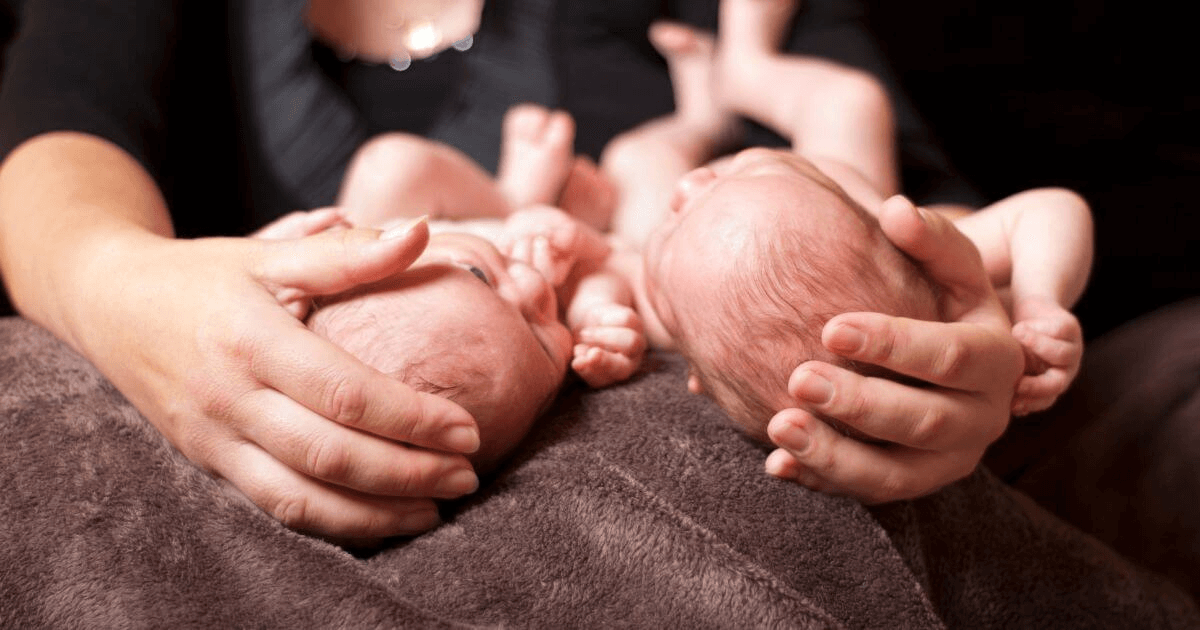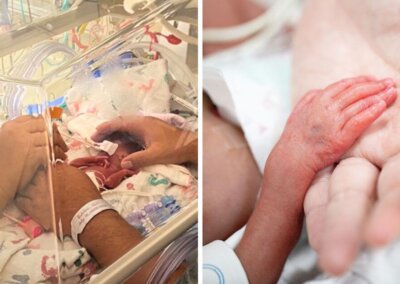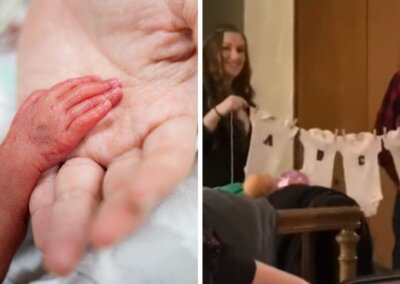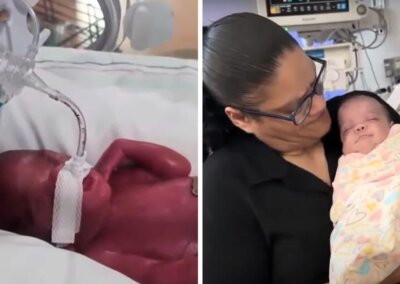Twin boys, born at just 22 weeks and weighing only 400 grams each, had to spend over a hundred days in hospital before they could go home.
The boys were born at Chungnam National University Sejong Hospital in South Korea after their mother’s waters broke early, at just 22 weeks and three days gestation – making them among the smallest surviving premature twins. They immediately required resuscitation procedures, including tracheal intubation, and were barely breathing on a ventilator.
“The miracle of survival by overcoming the extreme crisis of extremely low-birth-weight identical twins, for which it is difficult to find even statistics, is evaluated as the first achievement in Korea overcome by the high-level expertise and dedicated efforts of the medical staff of the NICU of Chungnam National University Sejong Hospital”, the hospital said.
Both boys faced huge medical challenges
One of the twins underwent surgery to fix a perforated intestine brought about by necrotizing enterocolitis, a condition that causes tissue in the intestine to become inflamed and die. He also had to travel to Seoul in order to receive treatment for retinopathy of prematurity, an eye condition affecting around 20% of premature babies.
The other twin had a pneumothorax, a collapsed lung, at just two days old and had a chest tube inserted. He was able to make his first cry after his ventilator was removed after 55 days.
However, thanks to the work of the hospital staff, both boys weighed over four kilograms – ten times more than their birth weight – before they were discharged. They were in good health without any severe brain haemorrhage or serious neurological complications.
“It was not unreasonable to say that their chances of survival were zero percent. However, it was the first miracle in Korea created by the dedicated efforts of highly skilled and specialized medical workers and the love of their parents”, staff at the hospital said.
Professor Lee Byung-kook, head of the Neonatal Intensive Care Unit at the hospital, said “This survival case shows the advancement of neonatal medical technology in Korea and reminds us of the dedication of medical staff and the importance of essential medical fields such as neonatal intensive care units and pediatric surgery”.
“We hope that the central and local governments will continue to support and make efforts to protect precious lives so that we can give great hope to many premature babies and their families struggling to survive”.
Survival rates have improved for babies born below the abortion limit
Key studies in recent years have documented the improving outcomes for these babies born at this gestation. A 2008 study looking at survival rates for a neonatal intensive care unit in London found that neonatal survival rates at 22 and 23 weeks gestation had improved over time. In 1981-85, no babies who were born at these gestational ages survived to discharge. However, by 1986-90, 19% did and this increased to 54% in the period 1996-2000.
In the decade to 2019 alone, the survival rate for extremely premature babies born at 23 weeks doubled, prompting new guidance from the British Association of Perinatal Medicine (BAPM) that enables doctors to intervene to save premature babies from 22 weeks gestation. The previous clinical guidance, drafted in 2008, set the standard that babies who were born before 23 weeks gestation should not be resuscitated.
Research published in November 2023 by academics at the University of Leicester and Imperial College London found a total of 261 babies born alive at 22 and 23 weeks, before the abortion limit, who survived to discharge from hospital in 2020 and 2021. This is compared to the Government abortion statistics, which show that in 2021 alone, 755 abortions were performed under Section 1(1)(a) of the Abortion Act when the baby was at 22 or 23 weeks gestation (the vast majority of abortions are permitted under Section 1(1)(a) of the Abortion Act, for which there is currently a 24-week time limit).
Spokesperson for Right To Life UK, Catherine Robinson, said “Stories like these demonstrate how advanced medical support for premature babies has become, such that two tiny boys born weighing less than half a kilogram each are now able to leave hospital in good health. Hopefully legislators across the world will take notice of the stories of premature children and alter laws to reflect the humanity of these babies”.












